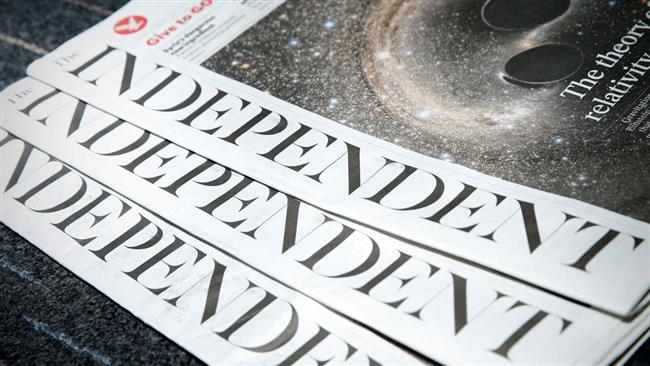
RNA - According to an exclusive report by the Middle East Eye (MEE) news portal on Friday, Sultan Mohamed Abuljadayel, 42, has acquired up to 50 percent of the Independent website and controls up to 50 percent of voting rights within Independent Digital News and Media, the company that controls the Independent brand.
Abuljadayel, who comes from an "established business family based in Medina," now gains significant control of the Independent alongside Evgeny Lebedev, the son of a Soviet KGB spy turned Russian media mogul, and Justin Byam Shaw, described by close associates as a "serial entrepreneur," the report said.
A source with knowledge of the deal, signed as long as a month ago, says Abuljadayel’s investment may amount to $130 million, but the MEE could not independently confirm the exact amount.
Such a figure indicates an incredible fortunes reversal for the company, which had lost millions of pounds a year for decades before it was sold to the Lebedev family in 2010. The company also had to ditch its print edition in 2016 due to its financial woes.
The Independent's fortunes currently set a record profit of £1.7mn ($2.2mn) and a 75-percent jump in its revenues.
The Independent media organization has long been renowned for championing progressive causes through its left-of-center coverage and closure of its print edition has been considered as a blow to British media plurality.
A spokesman said "editorial independence of the Independent has been formally protected."
However, the Saudi purchase of a "significant" part of the company has sparked grave concerns among rights campaigners, citing kingdom's extensive track record of human rights violations.
"It would not seem consistent with the Independent's record of championing liberal values for a Saudi sultan to have a significant share in the ownership of this media outlet,” rights activist Peter Tatchell told the MEE.
"A lot more questions need to be asked, and answered, before the public can be reassured that there is no clash of values between the sultan and the Independent," he added.
Seamus Dooley, the acting general secretary of the National Union of Journalists, expressed serious concern about the purchase, saying, "The NUJ (National Union of Journalists) is in favor of maximum transparency in terms of media ownership, and we know nothing about this group (the Saudi investor).”
"Also, there are serious concerns about Saudi and their relationship with the concept of media freedom and the record of anyone from Saudi in terms of human rights is something that would be of concern to us," he noted.
The Independent’s editor, Christian Broughton, did not respond to requests for comment from the MEE.
The US-based Freedom House, which conducts research and advocacy on political freedom and human rights, has described Saudi Arabia as “one of the most restricted media environments in the world.”
Writers critical of the Saudi government face "harsh punishment” and the kingdom’s war on Yemen has prompted the Saudi government to "shape media coverage" by "cracking down on domestic dissent and restricting access to Yemen by foreign journalists,” Freedom House said.
According to a statement by Amnesty International in 2016, the Arab kingdom has enforced an “abusive” anti-terror law, which equates peaceful protests with terrorism and allows it to hand down lengthy jail terms to peaceful critics and human rights activists after holding “deeply unfair” trials for them.
Apart from enormous restrictions on women’s rights, prevalent torture at prisons and extensive number of decapitations and executions, the Saudi kingdom is also under fire for its support for extremist groups and the ongoing war on Yemen, which has led to thousands of casualties and destroyed civilian infrastructure, including hospitals, schools, markets and factories.
Despite the existing concerns, Saudi Arabia’s permanent representative to the UN Office at Geneva, Faisal bin Hassan Trad, was officially re-appointed in September 2015 as the head of the five-member Consultative Group, a significant UN Human Rights Council (UNHRC) panel.
847/940